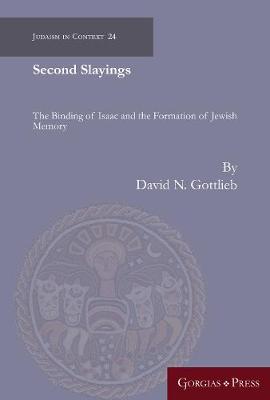Judaism in Context
1 primary work
Book 24
This work is a study of Jewish cultural memory as exemplified by rabbinic midrash of the Amoraic period, the second through fifth centuries of the Common Era, and especially midrash on the Akedah, the Binding of Isaac (Gen. 22:1-19). The Akedah is proposed and analyzed as a model for submission to the divine will through the act of interpretation. Rabbinic sages constructed a framework for cultural memory that relies on mimetic acts of interpretive substitution that are employed to confront, interpret, and remember ruptures as evidence of divine care, and they found, in the Akedah, a model for this interpretive stance. The form of memory they devised, termed midrashic memory, is proposed as inherent to rabbinic textual interpretation and whose origins are traced to the Akedah narrative itself. Midrashic memory is analyzed in selections from Amoraic midrash, in Shalom Spiegel's twentieth-century masterwork on the Akedah, The Last Trial, and is proposed as the crux of a theory and taxonomy of Jewish memory.
Second Slayings analyzes the Akedah as a metonym for cultural reorientation through the reharmonization of the lived ('temporal') and the covenanted ( 'anamnestic') planes of experience.
Second Slayings analyzes the Akedah as a metonym for cultural reorientation through the reharmonization of the lived ('temporal') and the covenanted ( 'anamnestic') planes of experience.
